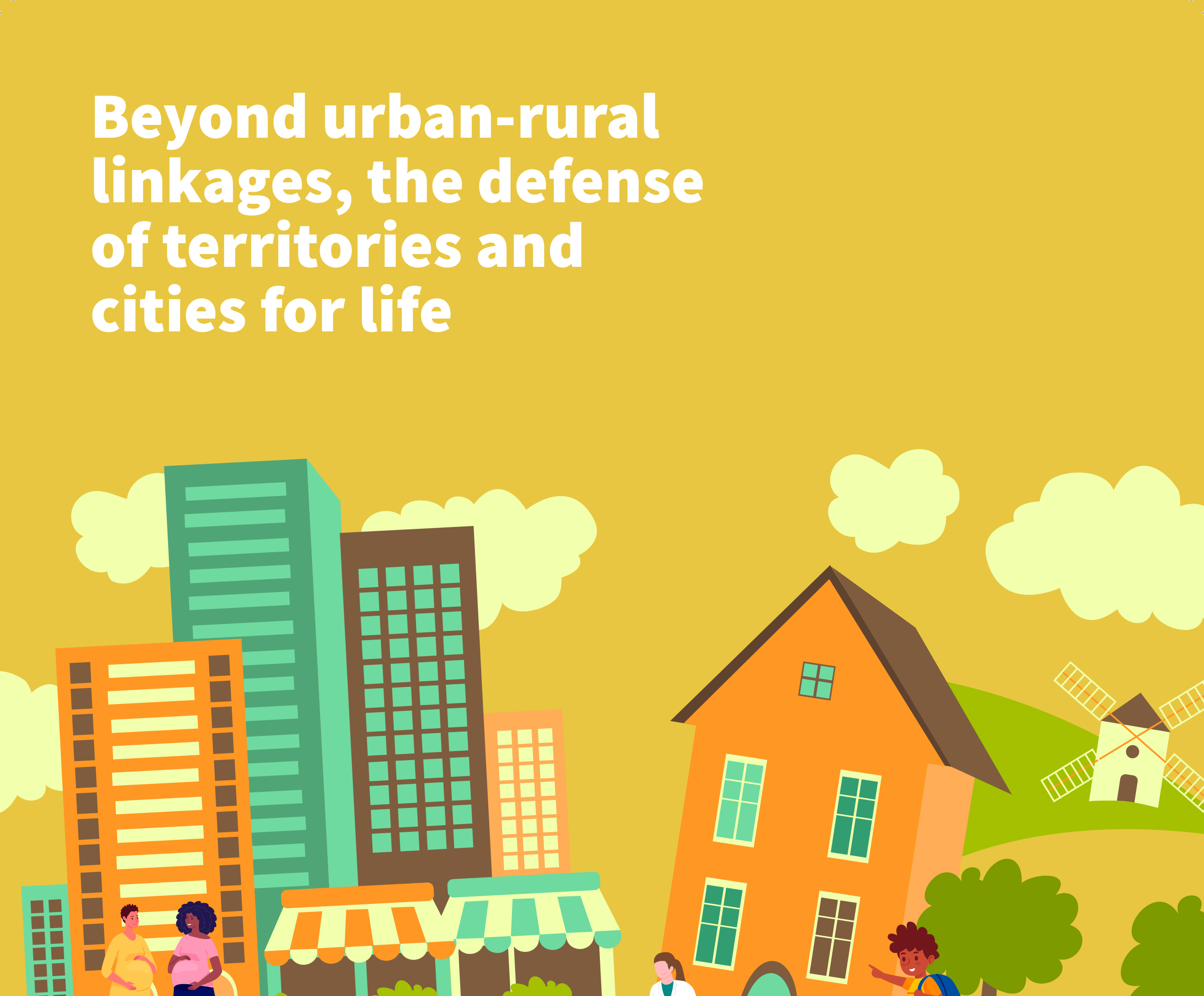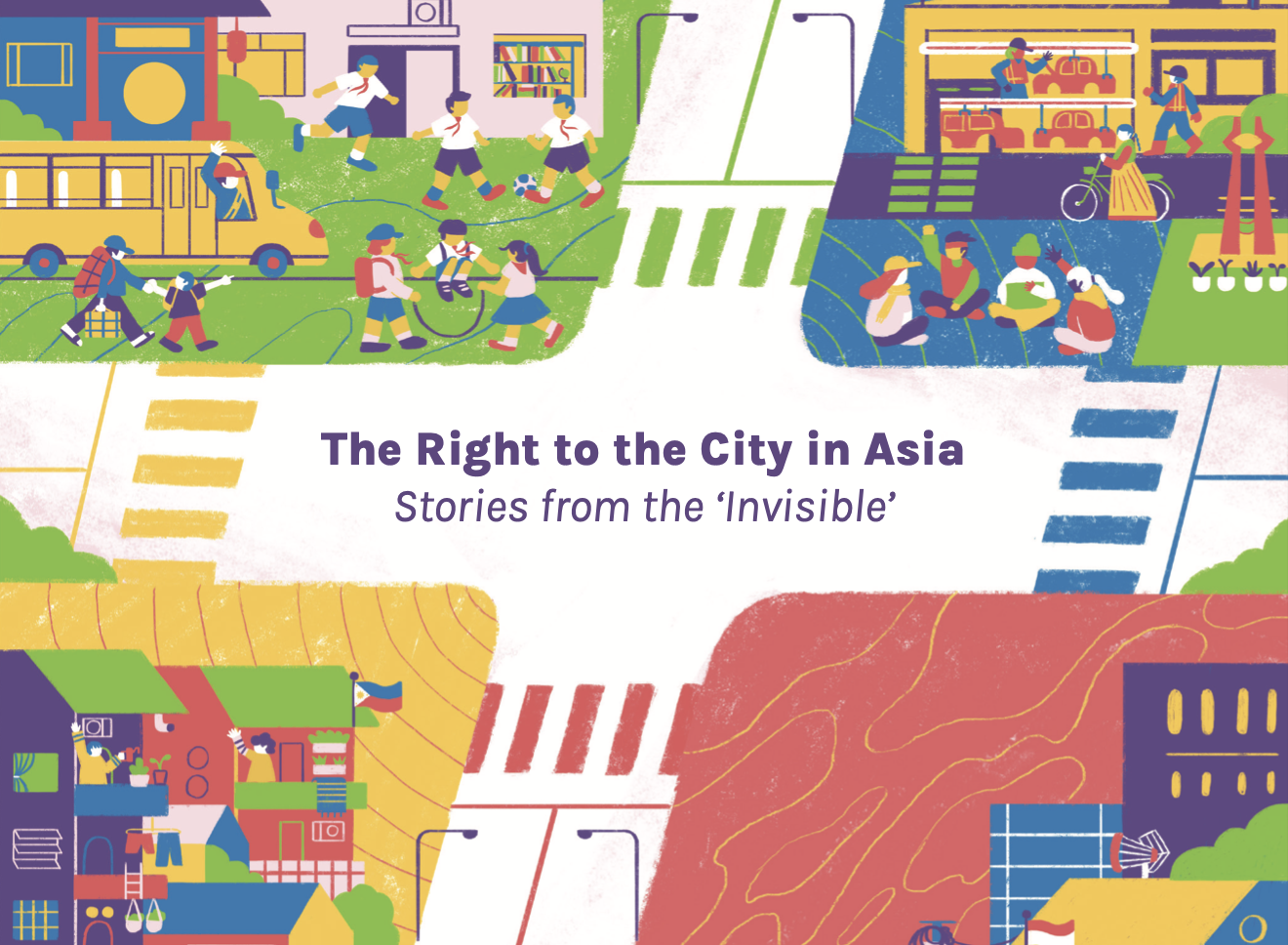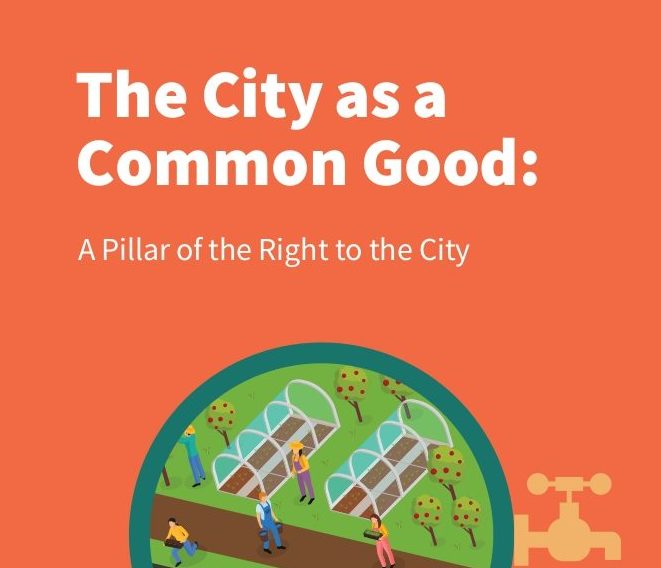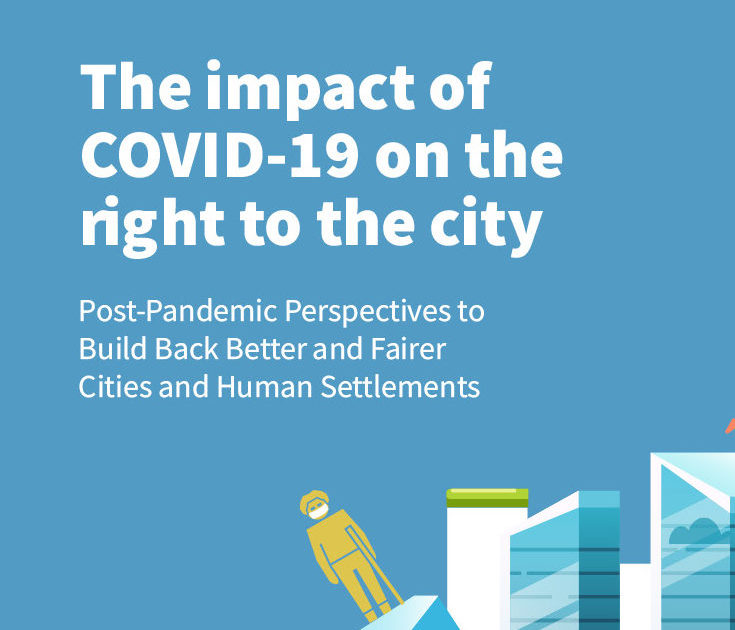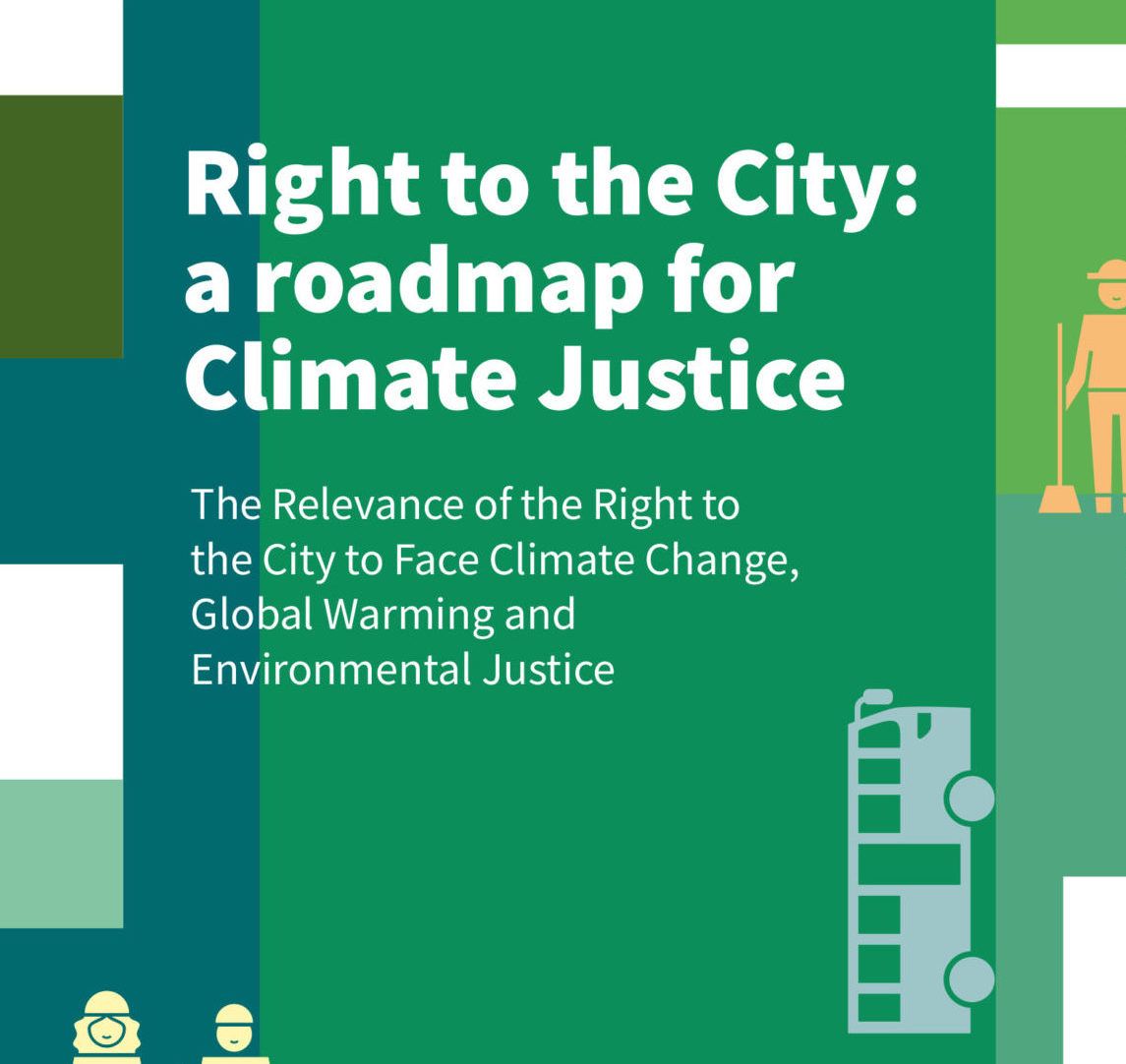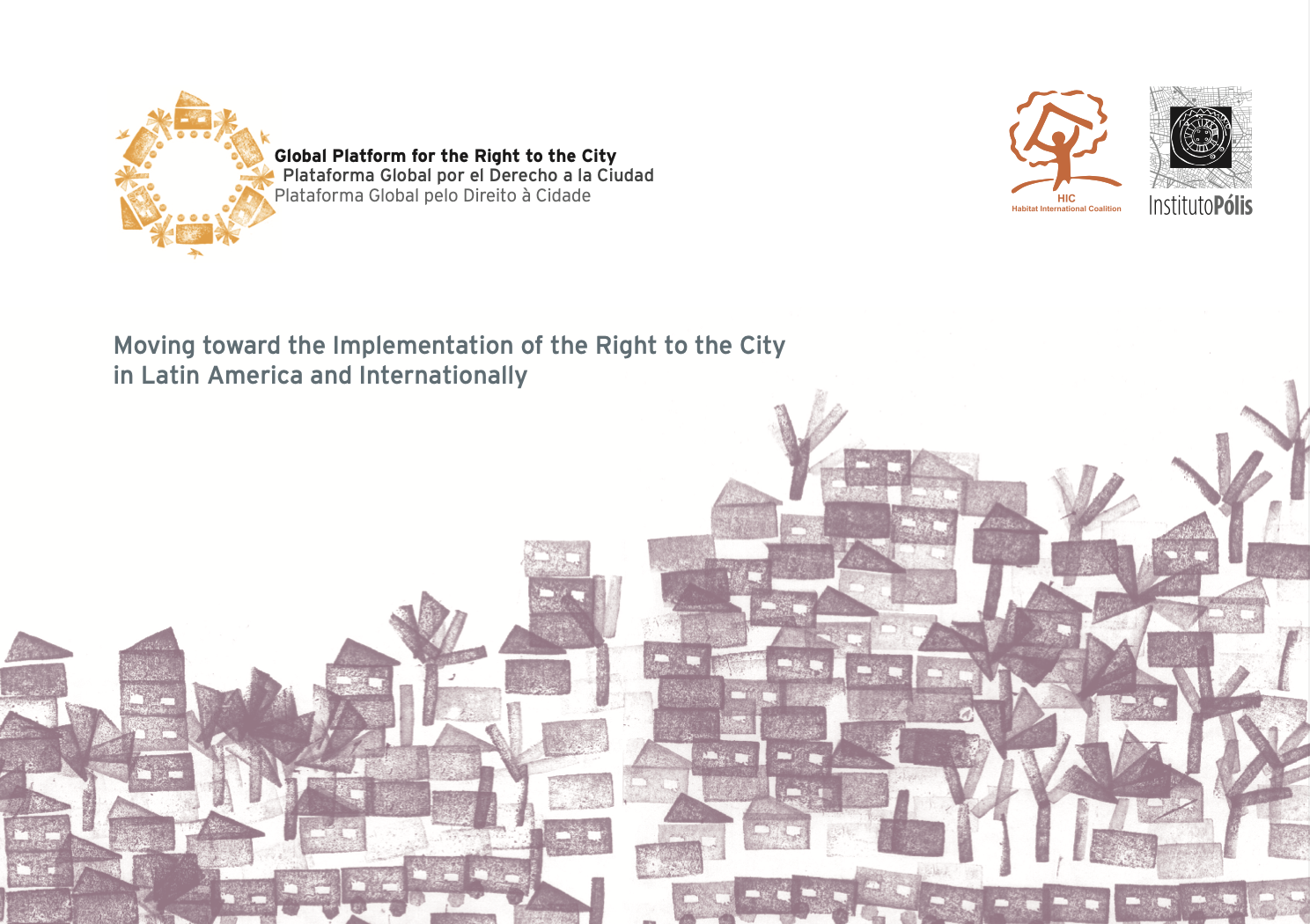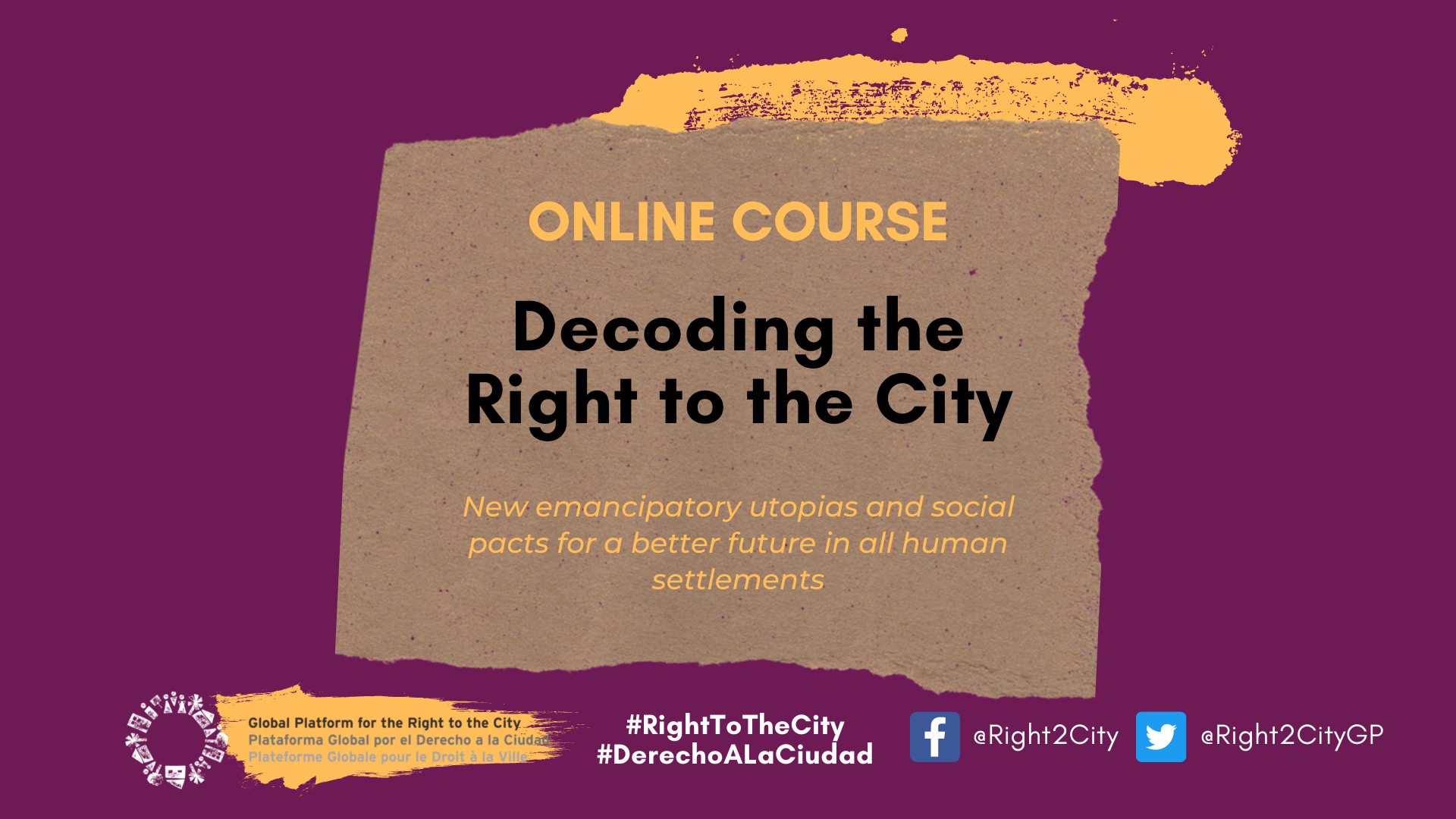
The Global Platform for the Right to the City (GPR2C) aims to bring the Right to the City closer to the collective imaginary of the peoples from all across the globe in order to inspire a better future for all human settlements. Under the framework “New emancipatory utopias and social pacts for a better future in all human settlements”, the GPR2C offered the online course “Decoding the Right to the City” worldwide, giving maximum accessibility and visibility to the Right to the City vision, in dialogue with those already existing transformative cosmovisions and creating new possible collective imaginaries.
This course is now available in open access. You can see all the recordings of the sessions here.
Sessions
Some sessions addressed historical aspects of the right to the city and essential aspects such as the gender perspective or how the Right to the City is reflected in global agendas (sessions 1,2 and 6). Other ones, addressed specific issues, such as the session on Right to the City and Covid-19 (second part of session n°6) or the Right to the City as a roadmap for Climate Justice (session 5). Thus, inspiring the 135 participants to interact with the lecturers and other participants (academics, professionals, activists, etc.) with local and global perspectives of the different topics approached.
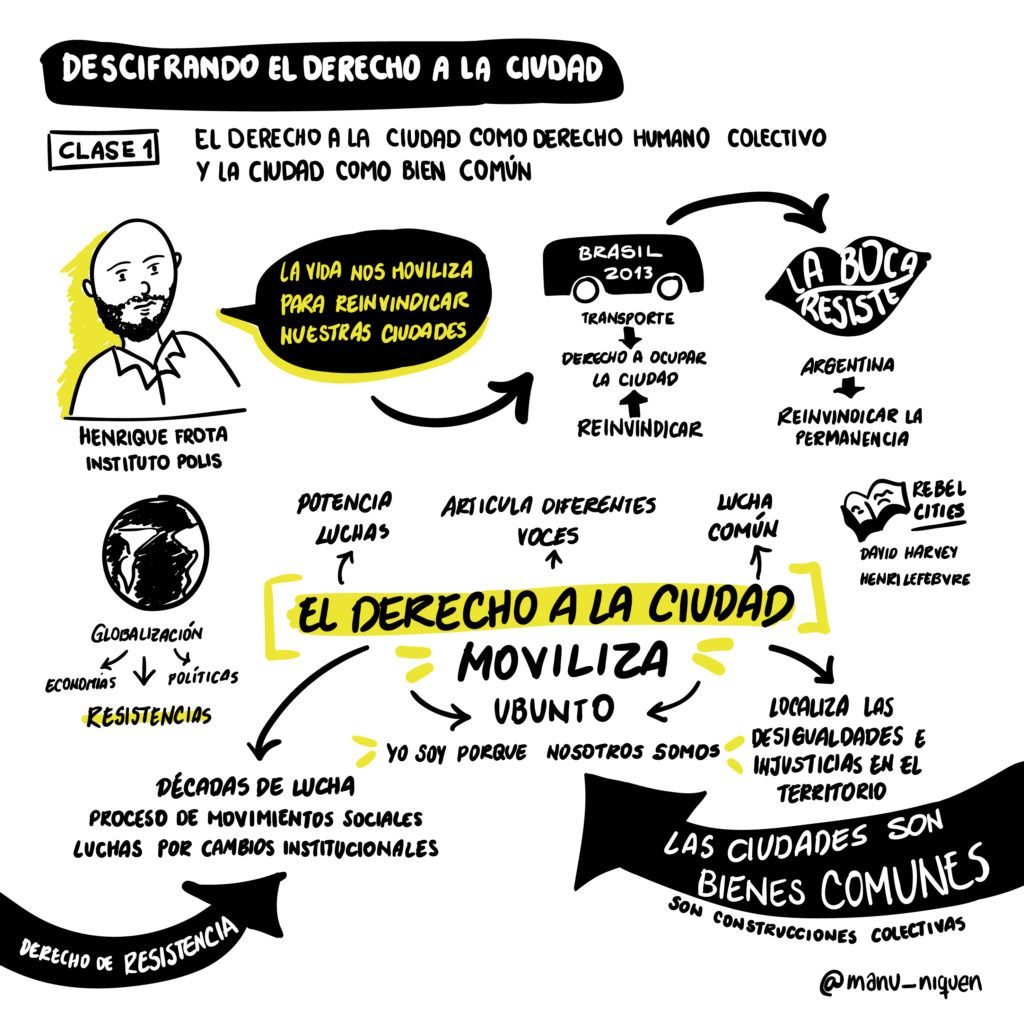
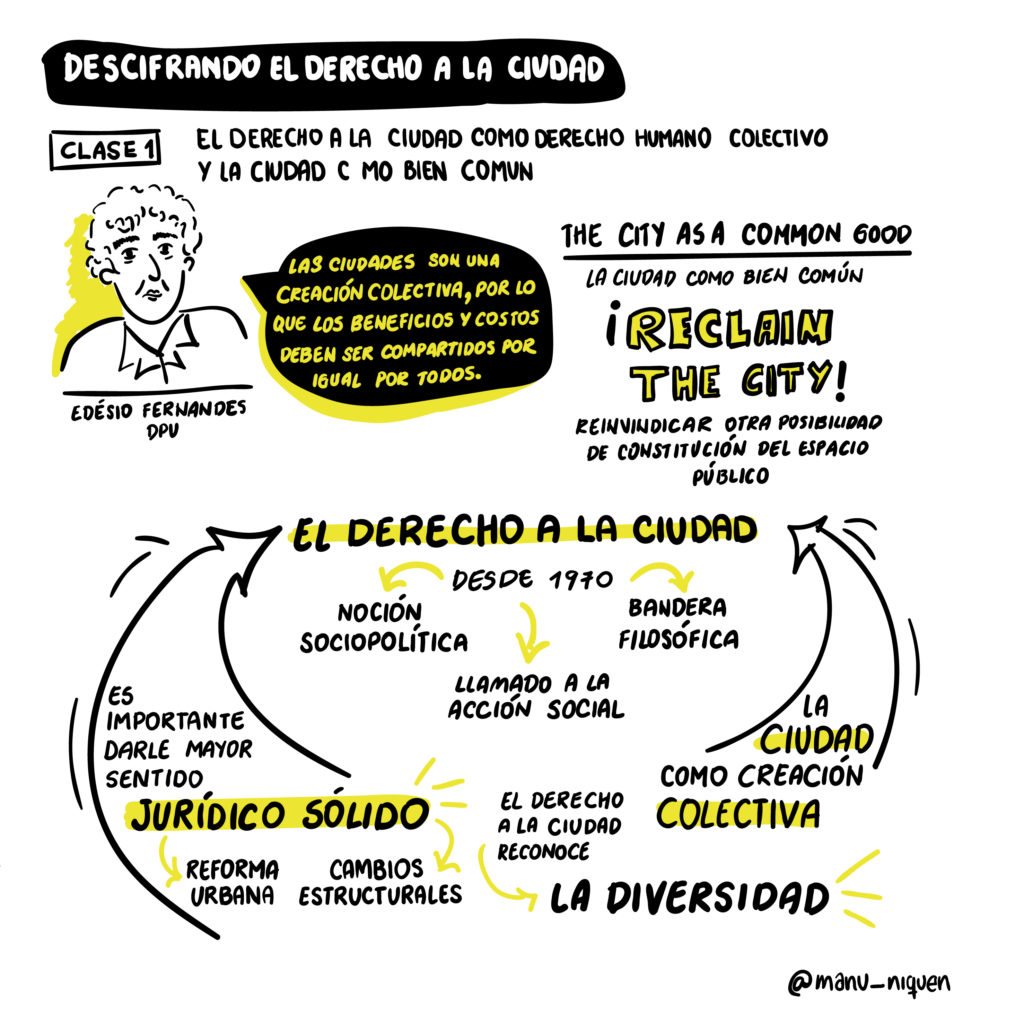
Manuela, a student from Peru, was inspired to design a graphic summary of session 1 of the course.
Challenges
A key purpose for the GPR2C with this course was to make it very interactive and participatory, allowing all participants to contribute with ideas and experiences from their own countries and local experiences. For this, we proposed 3 challenges that contributed to broadening everyone’s knowledge about the Right to the City.
The first one consisted of sharing a song that made reference to one of the themes of the course, within a collaborative playlist. Through this challenge, we wanted to show that music can be an international language and that it can bring people from different parts of the world and cultures together. The second one was focused on gender issues, the participants had to share a picture illustrating the importance of the gender perspective in the city. The last challenge consisted in sharing audiovisual documents that made reference to one of the topics of the course.
Thanks to all this work, we now have a large number of documents with a diversity of experiences on the implementation of the right to the city throughout the world.
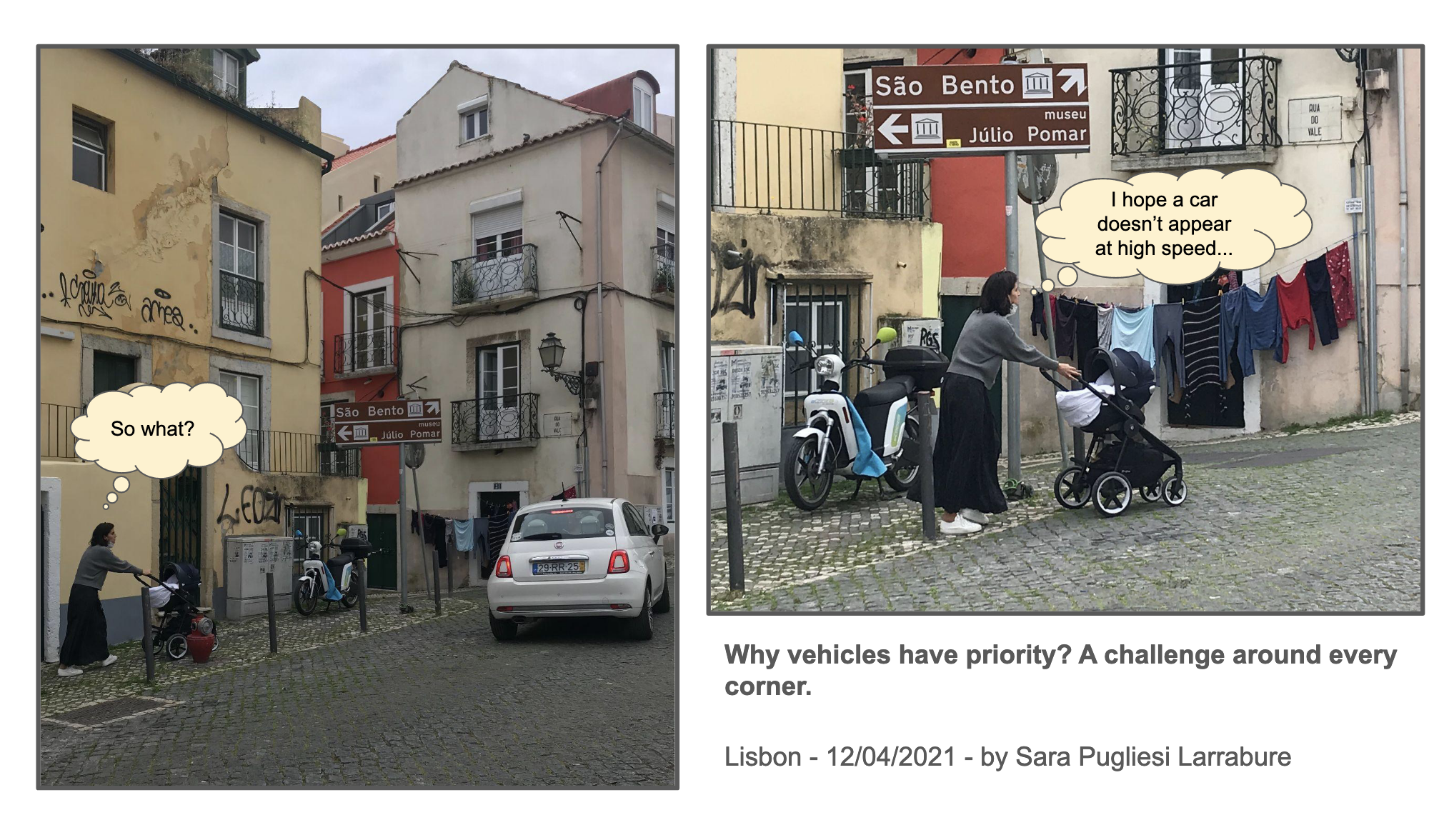
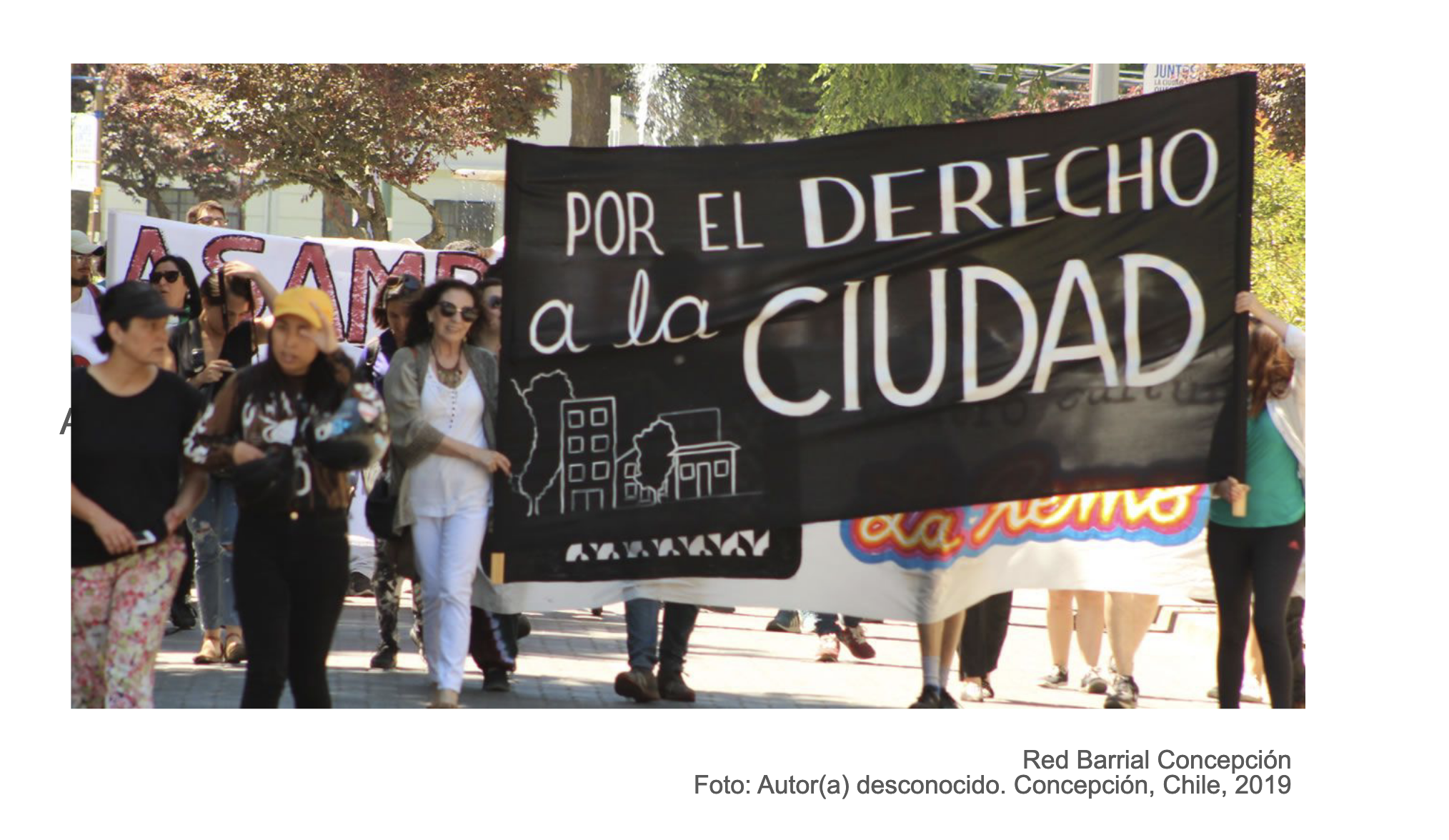
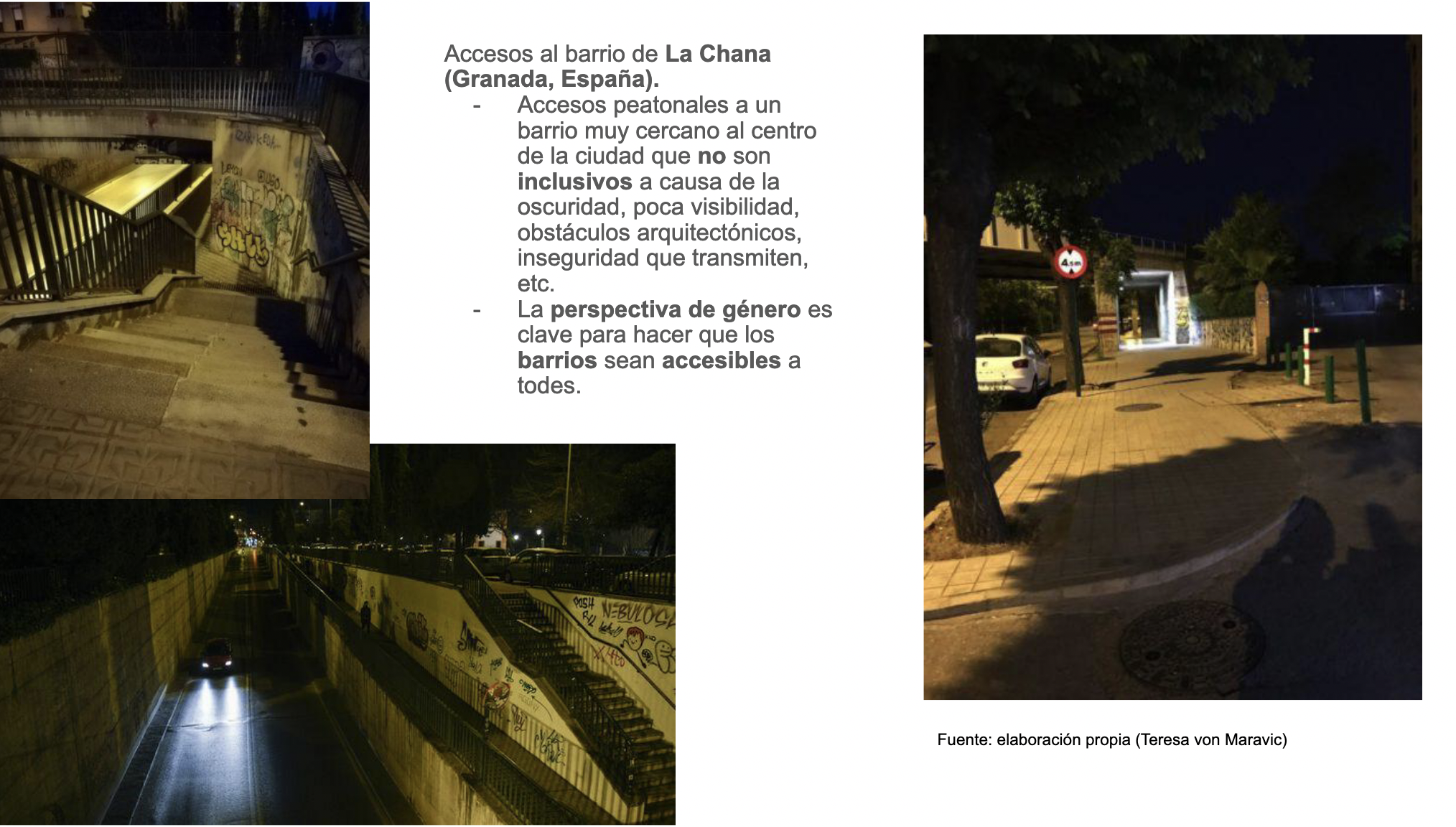
Some images and ideas that participants shared to engage with the challenges proposed
Evaluation
Finally, we asked the participants to evaluate the course. This allowed us to know more about how the course went and what we should improve for future courses. First, the course helped to introduce people to the GPR2C, as 60% of the participants were not familiar with the GPR2C before the course. Regarding the learnings, the course allowed people to learn more about the Right to the City, as this graphic shows.
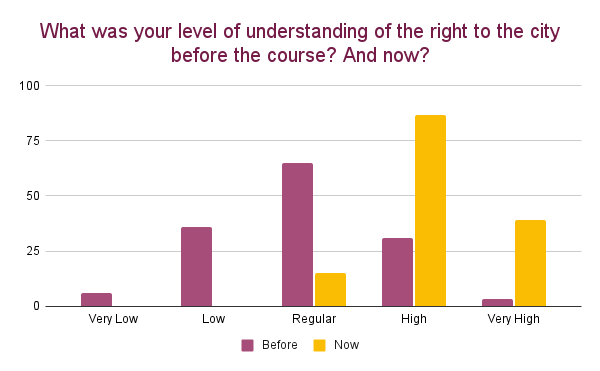
Some aspects where we can improve ourselves are: to overcome the language barrier so everyone can understand and participate. Although there was a live translation, we have not been able to translate the youtube broadcasts. The participants also asked to enable more spaces for discussion, with more challenges and time for interaction among participants and with the speakers.
Here are some comments from the participants:
“I think there was maximum use of the technology, the strengths were made clear, and I salute the fact that the differences in approach were made clear in the first session. This is very plausible because of its transparency and coherence with the idea that it is a concept under construction.”
“Grateful for the opportunity because the quality was excellent. In addition, it was very accessible because there was no fee and it was possible to watch it on a deferred. The challenges were extremely creative and not at all overwhelming. Thank you!”
“This is my first time attending an international course and I feel so welcomed and I wish everyone an everlasting joy ahead!”
“This was a very good and eye opening course, I could suggest more participation from African organizations.”
About the Course
During Spring 2021, the Global Platform for the Right to the City (GPR2C) held the course “Decoding the Right to the City”. Through a kaleidoscopic approach, the course presented different perspectives and initiatives for the realization of the Right to the City. In total, we held 7 sessions with 13 lecturers and a minimum of 135 students per session from all over the world, reaching 200 on-live participants in several sessions.
GPR2C members from different world regions contributed as lecturers with their expertise connecting with a variety of topics such as women and gender; inclusive and solidary economies and food sovereignty; social production of habitat and informal settlements; rural-urban linkages and environmental dimensions; and democratic governance.
We thank all the participants and lecturers and hope that this course has provided a better understanding of the Right to the City and the possible ways to implement it!





